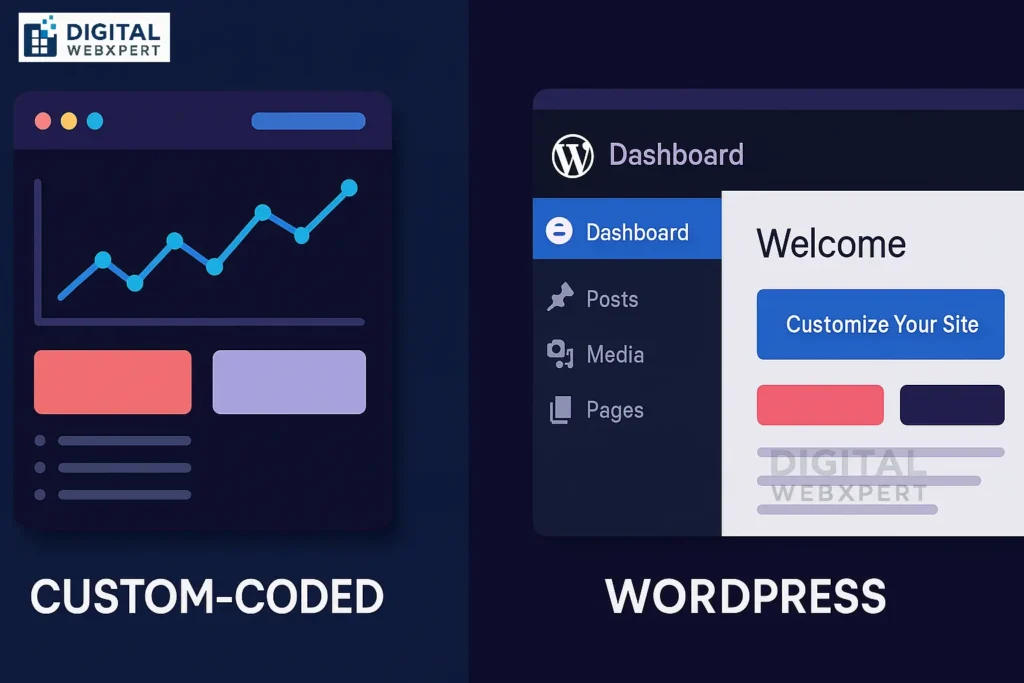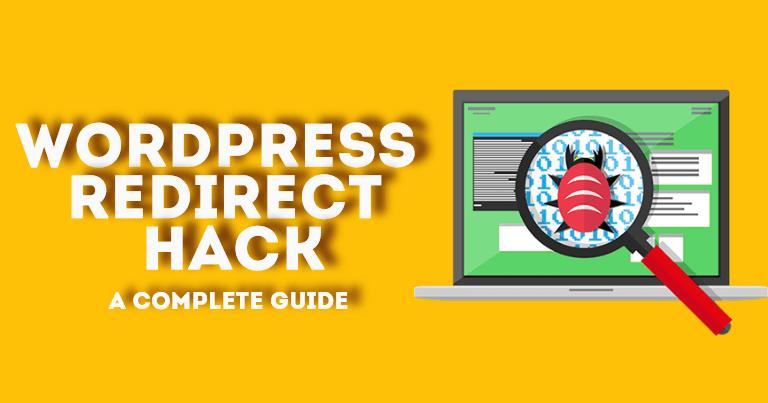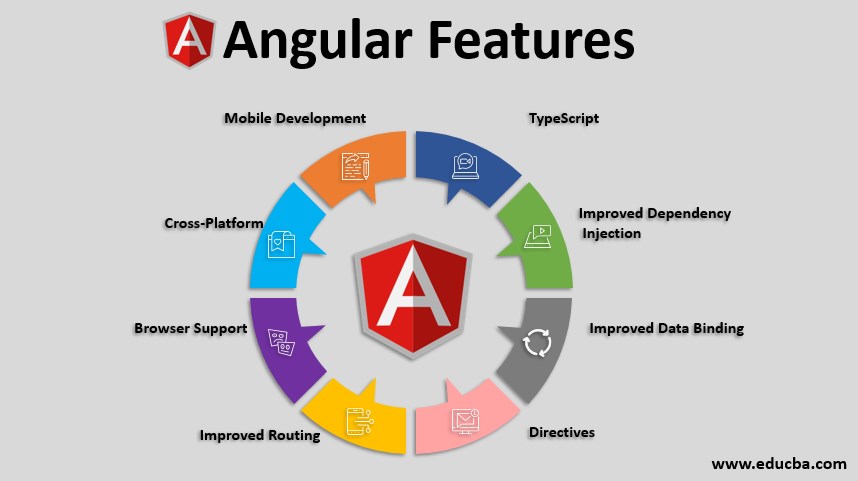How to Choose: Custom Web App vs WordPress for Your Business
If you’re deciding between a Custom Web App vs WordPress solution for your business website, you’re making a critical decision. In this guide, we examine the differences, pros, cons, and real-world use cases of both options to help you make an informed choice.
⚡ What Is a Custom Web App and What Is WordPress?
A Custom Web App is a tailor-made web application built to your specifications—often using frameworks like Laravel, CodeIgniter, or Node.js. It’s built from the ground up to serve your unique business processes.
WordPress, on the other hand, is a popular CMS powered by themes and plugins. It’s flexible and fast to launch, ideal for blogs, brochure sites, and simple e-commerce stores using WooCommerce.
Hence, the debate between Custom Web App vs WordPress primarily boils down to flexibility vs speed.
🚀 When to Choose WordPress
Fast Setup & MVP Launch: WordPress allows you to get online quickly.
Cost-effective for Basic Sites: Low development costs using themes and plugins.
Large Plugin Ecosystem: Add functionality like forms, SEO, and e-commerce instantly.
Ideal for Blogs & Small Business Sites: Perfect for content-driven websites.
But if your project demands more complex workflows, the Custom Web App vs WordPress comparison hinges on scalability.
🧩 Why Go for a Custom Web App?
Tailored Functionality: Works perfectly for booking systems, dashboards, or data-driven tools.
Scalability & Performance: Optimized code means faster loading and better user experience.
Enhanced Security: No plugin vulnerabilities or reliance on external themes.
Ownership of Codebase: Full control and easier future customizations.
Integration Flexibility: Seamless connection with CRMs, ERP systems, or third-party APIs.
Thus, for high-growth businesses, the Custom Web App vs WordPress decision often favors long-term custom solutions.
📊 Side-by-Side Comparison
| Feature | WordPress | Custom Web App |
|---|---|---|
| Setup Time | Days | Weeks – Months |
| Initial Cost | Low | Medium to High |
| Custom Functionality | Limited to plugin options | Fully bespoke |
| Performance & Speed | Moderate | High |
| Security | Plugin-based vulnerabilities | Hardened custom development |
| Scalability | Suitable for small to midsize websites | Ideal for growth and complex workflows |
| Maintenance | Regular updates required | Requires developer maintenance |
The Custom Web App vs WordPress choice depends on how dynamic and robust you expect your business website to be.
🌐 Real-Life Use Cases by Audience
Small Businesses focused on local services often leverage WordPress for quick ROI.
Startups looking for unique features or MVPs may begin with WordPress for testing, then migrate to a custom solution as they grow.
Freelancers/Creators, especially designers, may prefer WordPress for portfolios, then pivot to custom apps as client needs evolve.
Marketing Teams & Agencies often manage WordPress sites but rely on custom apps for advanced campaigns and data analytics.
eCommerce Sellers start with WooCommerce but opt for custom apps when sales volume, integrations, or personalization becomes critical.
Agencies & B2B Services frequently choose custom development for bespoke client needs.
Nonprofits & NGOs benefit from WordPress for informational sites and offer custom tools for donor management or impact tracking.
In each case, understanding Custom Web App vs WordPress helps make a strategic tech decision aligned with business goals.
⚙️ What Costs More?
While WordPress is cost-effective upfront, long-term costs might include frequent plugin updates, security patches, and scalability limits. In contrast, a custom web app requires more investment upfront but offers better ROI and flexibility over time. For many businesses, the Custom Web App vs WordPress cost analysis reveals the value of control and scalability.
🛠 Roadmap for Migration
If you’re starting with WordPress but plan to scale, here’s a smooth migration path:
Launch with WordPress MVP for validation.
Identify pain points as features evolve.
Start custom modules in parallel.
Work with developers to gradually migrate functionality.
Maintain legacy WordPress until the custom app is live.
This gradual adoption strategy bridges the gap in the Custom Web App vs WordPress transition.
✅ Tips to Build a Website That Converts
Optimize for speed and Core Web Vitals
Use clear CTAs, trust signals, and forms
Add landing-page-style templates for product/service promotions
Implement fact-based content, testimonials, and case studies
Integrate analytics and retargeting tools
Whether built on WordPress or custom, conversion optimization remains a key differentiator.
🎯 Conclusion: Custom Web App vs WordPress – Final Take
Ultimately, your choice depends on your goals:
Use WordPress for fast, inexpensive website launches with rich plugin support.
Choose a Custom Web App if you require unique features, long-term scalability, and strong performance.
If you’re a small business owner, agency, nonprofit, or eCommerce brand assessing Custom Web App vs WordPress, our expert team can guide you. We build custom solutions and WordPress power-ups tailored to your success.
Need help choosing between a custom web app or WordPress?
🔗 Request a free consultation with Digital WebXpert



